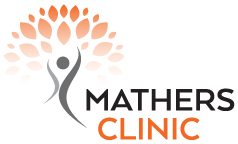PHOBIAS
OUR SERVICESPhobias
If you have a phobia, it’s critical that you seek treatment. Overcoming phobias can be difficult, but with the right treatment, you can learn to manage your fears and lead a productive and fulfilling life.
What Are Phobias?
A phobia is an excessive and an irrational fear reaction. Those suffering from a phobia may experience a deep sense of dread or panic when they encounter the source of their fear. The fear can be of a certain place, a situation or an object. Unlike general anxiety disorders, A phobia is usually connected to something specific while other anxiety disorders are more generalized.
The impact of a phobia can vary from being simply annoying to being severely disabling. People with phobias may realize that their fear is irrational, yet they are incapable to do anything about it. These fears can interfere with work, school, and personal relationships. These fears can hinder functionality in everyday life and prevents them form leading the fullest life possible.
Causes
A combination of hereditary and environmental factors can cause phobias. Proximity may be an issue, for example a child who has a close relative with an anxiety disorder are at risk of developing a phobia. Bad experiences or highly distressing events, such as exposure in confined spaces, extreme turbulence on a plane and extreme heights can all be origins of phobias.
Medical conditions or health concerns are often connected to phobias. Research has proven that people have developed phobias after traumatic brain injuries. Substance abuse and depression are also associated to phobias.
Risk Factors
Those with a genetic predisposition to anxiety may be at high risk of developing a phobia. Age, socio-economic status, and gender seem to be risk factors only for certain phobias. For example, women are more likely to have animal phobias. Children or people with a low socio-economic status are more likely to have social phobias. Men make up the majority of those with dentist and doctor phobias.
Treatment Options
Treatment for phobias may involve psychotherapy or pharmacotherapy or a combination of both.
Cognitive Behavioral Therapy
Cognitive behavioral therapy (CBT) is the most commonly used psychotherapy for phobias. The treatment involves exposure to the source of the fear in a controlled setting. The goal is to decondition the client and reduce their anxiety. The process focuses on identifying and changing negative thoughts, dysfunctional beliefs, and negative reactions to the phobic situation and/or object.
Symptoms Of Phobias
The most common symptoms of a phobia is the same as a panic disorder. These are symptoms of a panic attack:
- a choking sensation
- a sense of impending doom
- chest pain or tightness
- dizziness or lightheadedness
- dry mouth
- elevated blood pressure
- nausea / dizziness
- pounding or racing heart
- profuse sweating
- rapid speech or inability to speak
- shortness of breath
- trembling or shaking
- upset stomach
A LIST OF PHOBIAS
- Acrophobia – This is the fear of heights. People with this phobia avoid mountains, bridges, or the higher floors of buildings.
- Agoraphobia – is a fear of places or situations that you can’t escape from. The word itself refers to “fear of open spaces.”
- Aphenphosmphobia – The fear of intimacy. Fear of being touched and love.
- Arachnophobia – This means fear of spiders.
- Astraphobia – The fear of thunder/lightning
- Aerophobia – This is also known as the fear of flying.
- Claustrophobia – This is a fear of enclosed or tight spaces. Severe claustrophobia can be especially disabling if it prevents you from riding in cars or elevators.
- Cynophobia – This is a fear of dogs.
- Dentophobia – is a fear of the dentist or dental procedures. This phobia generally develops after an unpleasant experience at a dentist’s office. It can be harmful if it prevents you from obtaining needed dental care.
- Glossophobia – This is known as performance anxiety, or the fear of speaking in front of a group of people. People with this phobia have severe physical symptoms that occur when they merely think about being in front of a group of people
- Hemophobia – This is a phobia of blood or injury. A person with hemophobia may faint when they come in contact with their own blood or another person’s blood.
- Mysophobia – The fear of germs
- Nyctophobia – This phobia is a fear of the nighttime or darkness. It almost always begins as a typical childhood fear. When it progresses past adolescence, it’s considered a phobia.
- Ophidiophobia – People with this phobia fear snakes.
- Social Phobia – is the extreme worry about social situations and it can lead to self-isolation. People with social phobia often go out of their way to avoid public situations.
- Xenophobia – The fear of the unknown. Fearing anything or anyone that is strange or foreign
Contact Mathers Clinic
Contact us to schedule an appointment with a psychiatrist or for more information about our services by calling (815) 444.9999. You may also email us at info@themathersclinic.com. We look forward to helping you meet with a psychologist at a time that works well for you.
815.444.9999 |
|
Download Self-Rating Scale
Please download, print and fill out the form below. Do you need Adobe Acrobat Reader DC? It’s free – CLICK HERE.

Respectfully Caring for the Emotional Well Being of Individuals & Families.
Crystal Lake Office
145 South Virginia Street
Crystal Lake, Illinois 60014
phone: 815.444.9999
fax: 815.986.1363
Monday 8:00am - 7:00pm
Tuesday 8:00am - 7:30pm
Wednesday 8:00am - 6:00pm
Thursday 8:00am - 5:00pm
Friday 8:00am - 5:00pm
Saturday 9:00am - 12:00pm
Sunday Closed
Woodstock Office
715 West Judd Street
Woodstock, Illinois 60098
phone: 815.444.9999
fax: 815.986.1363
Monday 9:00am - 5:00pm
Tuesday 9:00am - 7:00pm
Wednesday Closed
Thursday 9:00am - 7:00pm
Friday 8:00am - 5:00pm
Saturday Closed
Sunday Closed
Mathers Community Mental Health Center Affiliates:
THE MATHERS RECOVERY
Federally licensed facilities for opiate/opioid treatment. Full range service for detoxification.